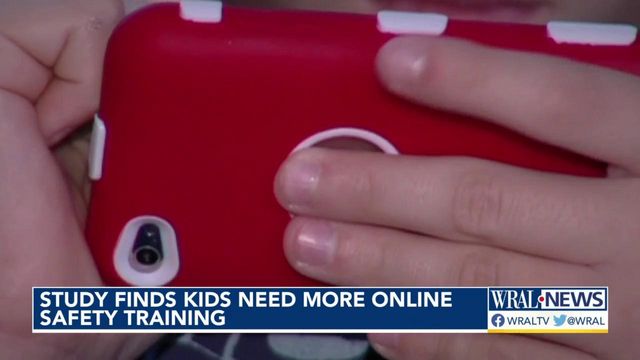NC State study: Elementary school kids need more training in safe surfing
A new study from researchers at North Carolina State University State has found a need for more consistent online safety training for elementary school-aged children.
It comes after surveys show average daily internet usage among kids has risen to an all-time high in the wake of the pandemic.
The study, titled “Teacher and School Concerns and Actions on Elementary School Children Digital Safety," was published last week.
To reach their findings, researchers spoke with elementary school teachers from across North Carolina about the types of online behaviors they were seeing in the classroom.
“Even at that young age, upper elementary school, they were searching for inappropriate content,” author Florence Martin said. “Which was definitely surprising, but also worrying.
"We realized kids have access to technology even at a very young age, and it is best to give them this education as early as possible," she said.
The study comes as researchers have found that children are spending more time on devices than ever, especially in the wake of the pandemic and the accompanying shift to online learning.
A survey from Common Sense Media found that the average time kids aged 8-12 spend online each day jumped 17% from 2019 to 2021.
The NC State study found five areas of concerning online behavior:
- Content, or the type of material kids are finding;
- Contact, meaning they’re getting in touch with people on the internet;
- Conduct, the way they’re talking and posting online;
- Contract, sharing passwords or secure info;
- Concerns about bringing home behaviors into the classroom or online.
Will Taylor’s son is in fifth grade in Raleigh. It’s only been a few years since his daughter was in elementary school, but Taylor told WRAL News he’s already seeing a change in the way kids behave online.
"My fifth grader likes to get on YouTube. That’s his thing. He gets on YouTube and he browses, and we can’t monitor that," he said.
“It’s a little concerning, and we don’t know what he brings up,” Taylor said. “And we can monitor it with the click of a button, but the problem is, we don’t know when he’s on.”
Researchers said they also came across potential strategies for families to limit negative behavior online.
“We know that there will be challenges, so how can we overcome them?” Martin said. “The biggest one is educating the kids.”
Martin said talking to your elementary schooler about how they act online is the most important way to address each of the concerns they identified.
Additionally, tech tools like firewalls that block bad sites and content could help steer kids away.
Taylor said his family has used an app called Bark to limit negative sites and searches, but online safety is still a work in progress.
“We’re going to monitor it a little more closely, and just tell him, have that conversation where if you see something that’s not right, don’t just click on it, tell us what’s wrong,” Taylor said.











